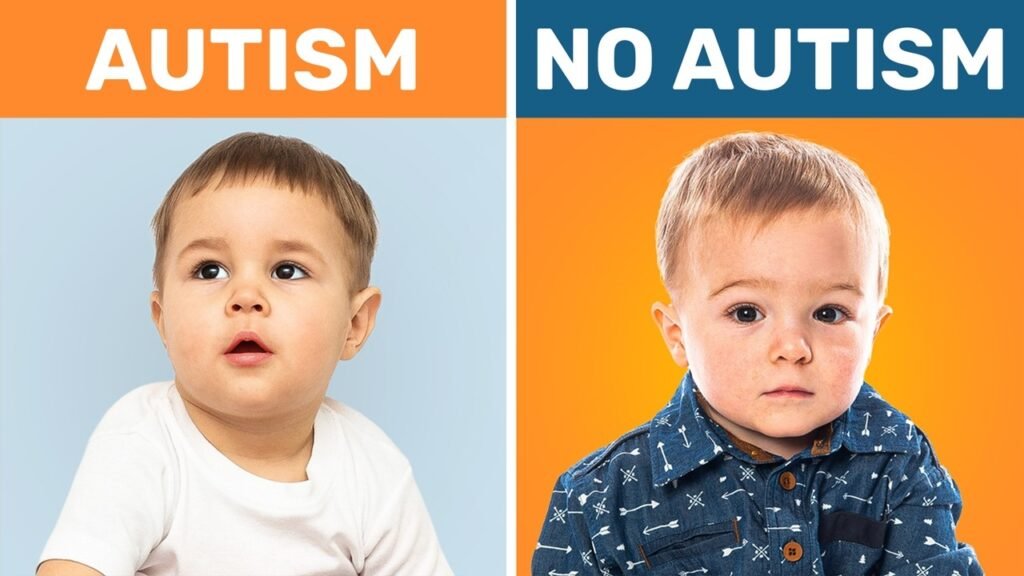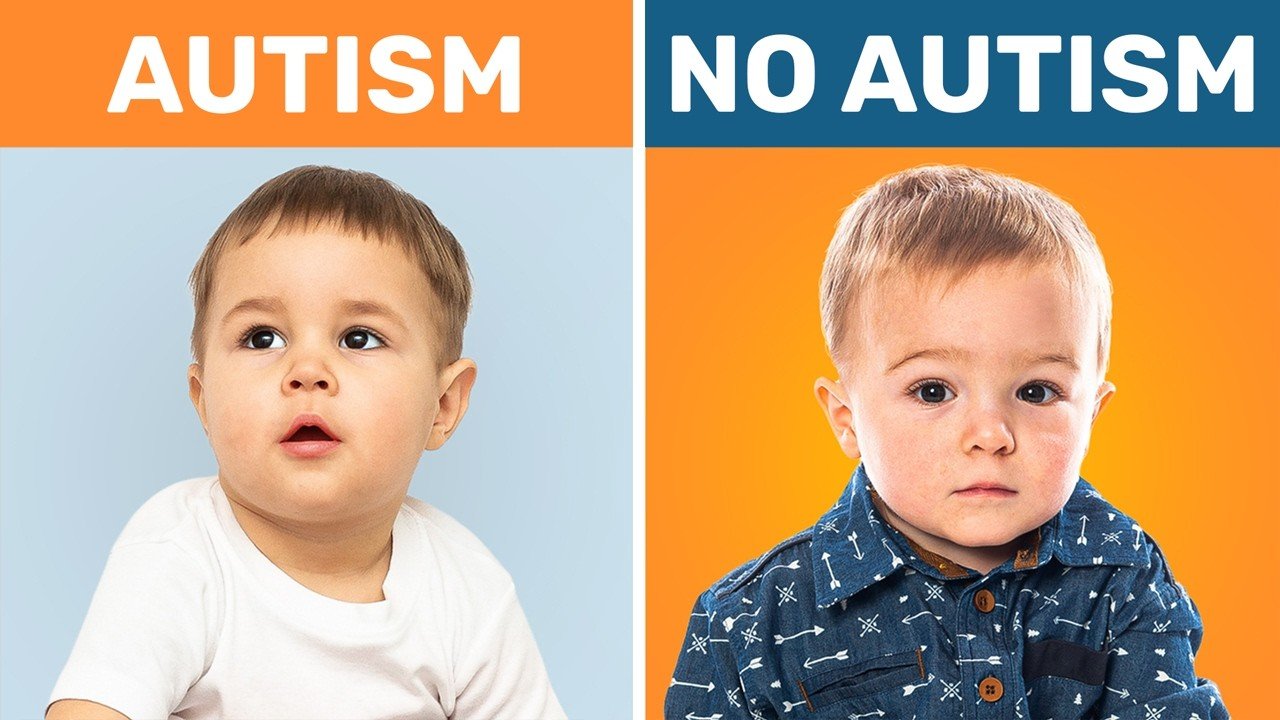In this video, you’ll be guided through 10 subtle signs of autism that most parents may not notice. From observing how your child engages in eye contact during play to recognizing their gestures and language development, these signs can indicate a need for further evaluation by a doctor or health professional. While spotting one or more of these signs does not automatically mean your child has autism, early intervention can make a significant impact on their future development. Remember, it’s always best to seek guidance from a medical professional if you have any concerns about your child’s health or development.
The video provides simple tests and explanations to help you recognize these subtle signs in your child. By becoming aware of these indicators early on, you can take proactive steps to support your child’s well-being and address any potential concerns with their doctor. Remember, your child’s health and happiness are the top priority, and early detection of autism signs can lead to better outcomes in the long run.
Lack of Eye Contact
Difficulty making eye contact during play can be a subtle sign of autism. Children with autism may struggle with maintaining eye contact while engaging in activities or games with others. This lack of eye contact can appear as if the child is not fully present or interested in the interaction, leading to difficulties in social engagements.
Limited or no eye contact during interactions is another common sign to watch for. Children with autism may avoid making eye contact during conversations, which can impact their ability to connect with others on an emotional level. This behavior might be misconstrued as shyness or disinterest, but it can be indicative of underlying autism spectrum disorder.
Lack of Sharing Excitement
Not showing excitement or joy with others is a potential red flag for autism. Children with autism may struggle to express their emotions or share their enthusiasm for certain activities or accomplishments. This can lead to difficulties in building relationships with peers and caregivers, as the child’s lack of shared excitement may be misinterpreted as a lack of interest.
Failing to share accomplishments or interests is another subtle sign to be mindful of. Children with autism may not engage in typical social behaviors, such as bragging about their achievements or sharing their interests with others. This under-sharing can hinder the child’s ability to form connections with those around them and may require additional support from parents and professionals.
Repetitive Behaviors
Engaging in repetitive movements or actions is a common behavior seen in children with autism. These repetitive behaviors can manifest in various forms, such as hand-flapping, rocking back and forth, or spinning objects. The child may find comfort in these repetitive actions, as they can provide a sense of predictability and control in their environment.
Fixation on specific routines or rituals is another sign to look out for. Children with autism may exhibit a strong preference for following specific routines or engaging in repetitive rituals. Any deviation from these routines can cause distress or discomfort for the child, highlighting the importance of structure and predictability in their daily lives.

Communication Challenges
Delayed speech development is a significant challenge that children with autism may face. Speech delays can manifest in various ways, such as limited vocabulary, difficulty forming sentences, or struggles with articulation. It is vital for parents and caregivers to monitor their child’s speech development and seek support from speech therapists if delays are observed.
Difficulty understanding or using language is another communication challenge associated with autism. Children with autism may struggle to comprehend verbal instructions, follow conversations, or express their thoughts and feelings effectively. This can lead to frustrations for both the child and those around them, highlighting the need for tailored communication strategies and interventions.
Social Interaction Issues
Struggling to engage with peers is a common trait observed in children with autism. Social interactions can be challenging for children with autism, as they may struggle to interpret social cues, make friends, or initiate conversations. This can lead to feelings of isolation and loneliness, highlighting the importance of social skills training and support from caregivers and professionals.
Not responding to social cues or interactions can also be a subtle sign of autism. Children with autism may struggle to pick up on non-verbal cues, such as facial expressions, gestures, or tone of voice. This can impact their ability to navigate social situations and build meaningful relationships, underscoring the need for targeted social skills interventions.
Sensory Sensitivities
Overreacting or underreacting to sensory stimuli is a common characteristic of children with autism. Sensory sensitivities can manifest in various forms, such as heightened sensitivity to loud noises, aversion to certain textures, or difficulty with bright lights. These sensitivities can impact the child’s daily life and may require accommodations to help them cope with their sensory experiences.
Difficulty with loud noises, bright lights, textures, and other sensory inputs can be overwhelming for children with autism. These individuals may struggle to filter out sensory information, leading to sensory overload or meltdowns. It is essential for parents and caregivers to create sensory-friendly environments and provide sensory accommodations to support the child’s well-being.
Difficulty with Transitions
Resistance to change in routines is a common challenge for children with autism. These individuals may struggle with transitions between activities or tasks, as they prefer predictability and structure in their daily lives. Sudden changes or disruptions to their routines can cause distress and anxiety, highlighting the importance of gradual transitions and visual supports.
Difficulty transitioning between activities or tasks is another subtle sign of autism. Children with autism may find it challenging to shift their focus from one activity to another or adapt to new situations. This inflexibility can impact their ability to navigate daily tasks and may require support from caregivers and educators to develop coping strategies for transitions.
Lack of Pretend Play
Limited or no engagement in imaginative play is a common feature of autism. Children with autism may struggle to engage in pretend play, such as role-playing different scenarios or characters. This difficulty in imaginative play can stem from challenges in social communication and flexible thinking, highlighting the need for targeted interventions to support the child’s play skills.
Not pretending to be different characters or scenarios can be indicative of autism spectrum disorder. Children with autism may prefer concrete or literal play activities, such as lining up toys or organizing objects by color. This lack of pretend play can impact their social development and creativity, underscoring the importance of fostering imaginative play skills in children with autism.
Repetitive Language or Actions
Repeating words or phrases frequently is a common behavior seen in children with autism. This repetitive language can take the form of echolalia, where the child repeats words or phrases they hear without comprehension. Understanding the reasons behind repetitive language can help caregivers and professionals support the child’s communication development and address any underlying needs.
Engaging in repetitive actions or movements is another sign to watch for. Children with autism may exhibit repetitive behaviors, such as spinning in circles, flapping their hands, or flicking objects. These repetitive actions can serve as self-soothing mechanisms or a way to cope with sensory overload, highlighting the need for interventions to promote more adaptive behaviors in the child.
Unusual Fixations on Objects
Becoming overly obsessed with specific objects is a common behavior associated with autism. Children with autism may develop intense interests in particular toys, items, or topics, which can consume a significant amount of their time and attention. These fixations may interfere with the child’s ability to engage in other activities or interact with their peers, underscoring the need for balanced play and social experiences.
Spending excessive time focusing on particular items can be indicative of autism spectrum disorder. Children with autism may exhibit repetitive behaviors related to their fixations, such as arranging objects in a specific order or collecting items obsessively. These fixations can provide comfort and predictability for the child but may require redirection or support from caregivers to promote more varied interests and activities.

